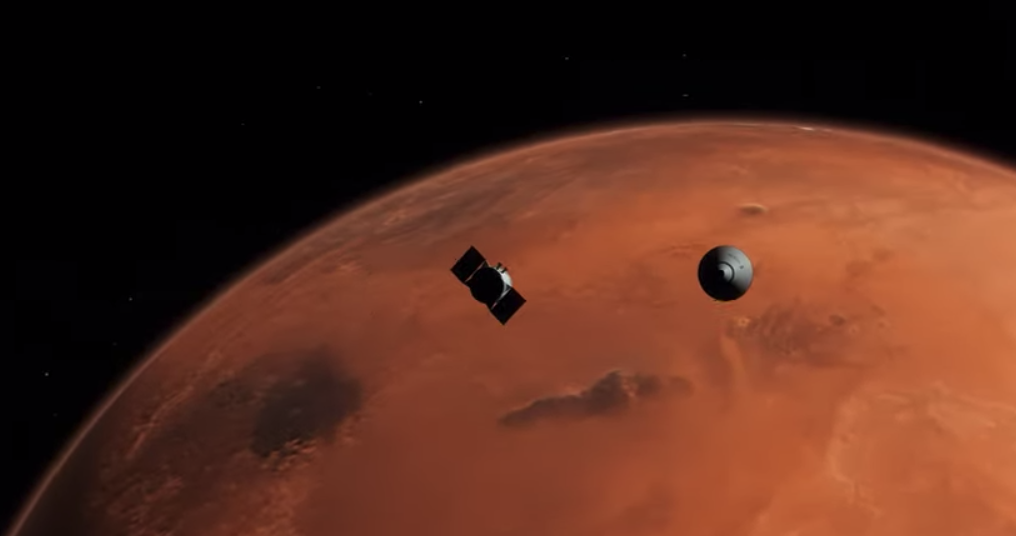Impulse Space and Relativity Space Plan Commercial Mission to Mars

The Impulse Space Mars Cruise Vehicle and Mars Lander. Screenshot via Impulse Space YouTube.
New space transportation company Impulse Space announced a partnership with Relativity Space on Tuesday to deliver the first commercial payload to Mars.
Impulse Space is developing the Mars Cruise Vehicle and Mars Lander, which Relativity Space plans to launch with its Terran R rocket as early as 2024. Under the deal announced Tuesday, Relativity has an exclusive agreement to launch the Mars Cruise Vehicle and Mars Lander until 2029.
Describing the mission, the companies said the spacecraft will be launched to a trans-Mars injection (TMI) orbit. It will journey to Mars orbit over half a year in space, and then the Cruise Vehicle will inject the Mars Lander into a landing trajectory. The Mars Lander will be equipped with a heatshield and use propulsion to land. Impulse’s Mars Lander will have its own payload capacity to the Martian surface, and support research and development “to build toward humanity’s multiplanetary future.”
“This is a major milestone for both Impulse and Relativity, as well as the entire space industry,” says Impulse Space Founder and CEO Tom Mueller. “One of the most challenging aspects of landing on Mars is the ‘glide stage,’ which involves an aeroshell to encapsulate the lander for the survival of Mars entry. With the power of our combined teams, experience and passion, I am confident this historic mission will be just one of many to come.”
Mueller was a founding employee of SpaceX and its former vice president of Propulsion Engineering. He led the team that developed the Merlin, Kestrel, and MVac engines and Draco thrusters for the Dragon spacecraft. He founded Impulse Space in September after retiring from SpaceX in late 2020.
Relativity has now signed five customers for the Terran R vehicle — before the first launch of its Terran 1 rocket, which is set to launch this year. Terran R will have almost 20 times greater payload capacity than Terran 1. The company recently announced a multi-year, multi-launch agreement with OneWeb to launch satellites in its Gen 2 network.
“We believe building a multiplanetary future on Mars is only possible if we inspire dozens to hundreds of companies to work toward a singular goal,” said Tim Ellis, co-founder and CEO of Relativity. “This is a monumental challenge, but one that successfully achieved will expand the possibilities for human experience in our lifetime across two planets. With the delivery capabilities of Terran R coupled with Impulse’s in-space transportation, we are bringing humanity one step closer to making Mars a reality.”